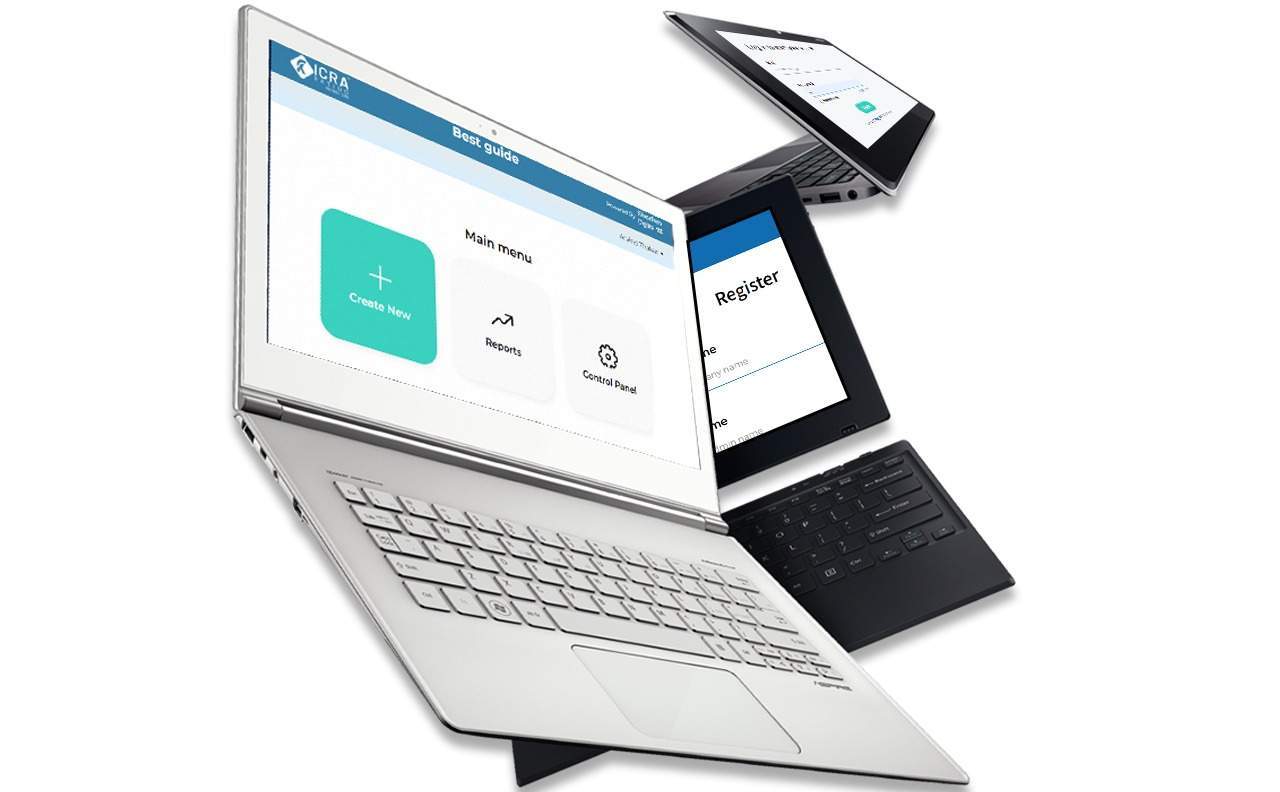
ISSUER CREDIT RATING SERVICES
A CREDIT RATING is an independent assessment of a corporate entity’s or institution’s creditworthiness in general terms, helping any organization build a strong credit profile. It is based on a well-structured methodology that reviews both qualitative and quantitative factors of target businesses. The rating analysis is comprehensive and assesses both historical performance as well as future performance prospects of the business.
What are their benefits & usages ?
- Increase your access to new markets
- Explain your creditworthiness to outside parties
- Benchmark your organization’s strengths & weaknesses
- Enhance your corporate transparency
- Anticipate the cost of capital & create strategic alternatives
- Share Information when considering a joint-venture partner


PORTFOLIO RATING SERVICES
A PORTFOLIO RATING is an evaluation assessment report that focuses deeply on the actual portfolio of banks or financial institutions. It involves a thorough evaluation of existing and potential risks and the mitigation of those risks. Periodic Portfolio rating and review help banks or financial institutions make necessary adjustments to maintain strategic asset allocation and keep current stakeholders/investors aligned with their envisioned goals. Additionally, it provides comfort to new investors and supports banks or financial institutions in gaining the confidence of other financial institutions when participating in large trade finance transactions.
What are their benefits & usages ?
The portfolio rating of a bank reflects its existing and potential credit risk associated with its asset portfolios, other real estate owned, and other assets, as well as off-balance sheet transactions.
Asset portfolio quality is an important determinant of risk that profoundly impacts liquidity and costs, their pronouncements can greatly affect the overall condition of a business for years to come.
For banks, the primary factor affecting overall asset quality is the quality of their loan portfolio and their credit administration program.
Bank Loan Rating
ICRA’s Bank Loan Ratings provide a comprehensive evaluation of both the creditworthiness of borrowers and the quality of specific loans issued by banks. These ratings are crucial for assessing the risk associated with lending or investing in loans, as they offer insights into the likelihood of timely repayment and the financial health of the borrower. By considering various factors such as financial stability, debt repayment history, and market conditions, ICRA’s ratings help businesses, lenders, and investors make informed decisions.
What are their benefits & usages ?
- Assess risk with precision to make informed financial decisions.
- Evaluate the quality of loans to align with your risk profile.
- Build investor confidence with trusted loan and borrower ratings.
- Make strategic lending decisions based on reliable credit insights.


INVESTORS SERVICES
An INVESTORS SERVICE is an evaluation and assessment report that is an essential aspect of the investment process. It allows investors to assess the effectiveness of their investment strategies by analyzing risk, return, and risk-adjusted performance. This service is also used by securities and insurance companies to rate creditworthiness, enabling investors to identify strengths and weaknesses, make necessary adjustments, and ensure they are meeting their investment objectives.
What are their benefits & usages ?
- Help investors make informed decision
- Help investors compare the risk associated with different investments
- Help investors understand the level of potential return & the level of potential loss.
- Help investors determine the level of risk that they are comfortable taking in their investments.
ESG Rating
ESG stands for three letters environment, social, and governance. These are important non-financial criteria on which businesses are expected nowadays to perform well. They also represent material risks to the long-term company performance. ESG criteria are used by impact investors to screen potential investments. Globally and locally, various initiatives like SDGs, and UN-PRI are aligned with ESG standards.
What are their benefits & usages ?
- Better firm value
- Better cost of debt
- More business opportunities
- Stakeholder satisfaction


ICRA Scorecard
ICRA SCORECARD serves as a comprehensive tool for assessing the initial risk profiles of both retail (individual customers) and corporate clients seeking credit and borrowing services. This scoring system is designed to cater to two distinct segments: Retail Customers and Corporate Customers
What are their benefits & usages ?
Provides a thorough evaluation of risk levels associated with individual retail customers and corporate clients, offering a holistic view of creditworthiness
Enables financial institutions to assess and categorize the risk profiles within their client portfolio, aiding in strategic alignment and risk management.
Facilitates objective and consistent decision-making for financial institutions by relying on predefined formulas and weighting factors.
Serves as an effective initial screening tool for new customers, streamlining the process of checking eligibility for availing lending and credit services.
For businesses dealing with credit terms, the scorecard expedites the determination of credit conditions and limits based on the risk category of customers.
Offers a proactive approach to risk mitigation for companies heavily dependent on credit sales, allowing them to make informed decisions and set appropriate credit limits.
